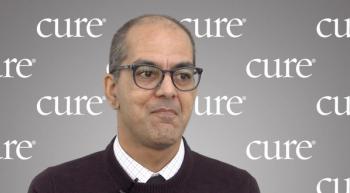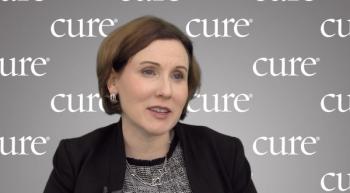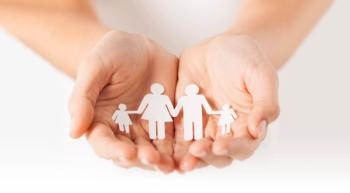
A cancer survivor tells readers how we can warm people up with a small spark even when we do not feel well.

A cancer survivor tells readers how we can warm people up with a small spark even when we do not feel well.

The Aplastic Anemia and MDS International Foundation presents webinars for patients and their loved ones at no charge to participants.

There are times in our cancer journey – and in life – when we want to “freeze time.” I am only in temporary remission, and eventually will have to go back on chemo again. This time it will likely be a new one with unknown consequences.

Sometimes all we can do it put one foot in front of the other to keep going.

It is difficult to be patient, but cancer is a powerful teacher.

My doctor explained to me I was in what is called “partial remission.” I am well aware that this is temporary, but as I wrote in another article – so is life! While there is no cure for my disease, I choose to appreciate each and every day that I feel good.

The Aplastic Anemia & MDS International Foundation presented its first Lifetime Achievement in Science Award to Mary Horowitz, MD, MS at the Foundation’s 35th Anniversary Luncheon and Awards Program on May 18, 2019. Dr. Horowitz was honored for the significant impact her work has had on stem cell transplant and hematologic malignancy practice worldwide.

The Aplastic Anemia and MDS International Foundation records educational webinars for patients.

On June 19, the webinar to be presented is “Shared Decision Making - Empowering Patients,” taught by Susan Berg, MS, LGC, from the Center for Shared Decision Making at Dartmouth – Hitchcock.

Many patients with myelodysplastic syndrome are not receiving early treatment.

Learning more about MDS will lead to better diagnostics and more personalized treatments.

I try so hard to be positive, but in the back of my mind, I am constantly waiting for the other shoe to drop, for my blood counts to worsen, for the results of the next bone marrow biopsy to be haywire, for the chemo with its side effects to be administered, intensified or changed.

A new television show, as well as a recent CURE campaign, gave insight to life with cancer.

It is not the type of fatigue where a good night’s sleep will “cure” us. It just seems to go on and on.

APLASTIC ANEMIA & MDS INTERNATIONAL FOUNDATION ANNOUNCES NEW EXECUTIVE DIRECTOR

When it comes to routine eye checkups and other appointments not directly related to my cancer, I become lax.

Cancer survivors learn to tunnel through the snow. We have a community to help us become stronger mentally and support us through the tough times.

There are dozens of potential side effects, and more are being reported every month.

One problem for all of us cancer patients is just when we think we have learned our limits, they change.

After a cancer diagnosis, is there anyone to blame?

Techniques open a field of opportunity for stem cell transplant recipients.

After we have been diagnosed with cancer, our lives will never be the same again. But we need to try to just perform one little service – a phone call, a card, an email to encourage others. The wonderful thing is with or without cancer, we may just live a little bit longer with joy!

Wistfully, I recall the days I could work all day, come home and do things around the house and then go out for dinner! Those days are long gone. I am off the chemo this week, but next week I will feel even more fatigue when I go back on.

It takes a village to support someone through a cancer diagnosis.

Recent research showed first-degree relatives of patients with certain types of blood cancers may be at an increased risk for such disease, highlighting the importance of counseling, gene testing and surveillance.